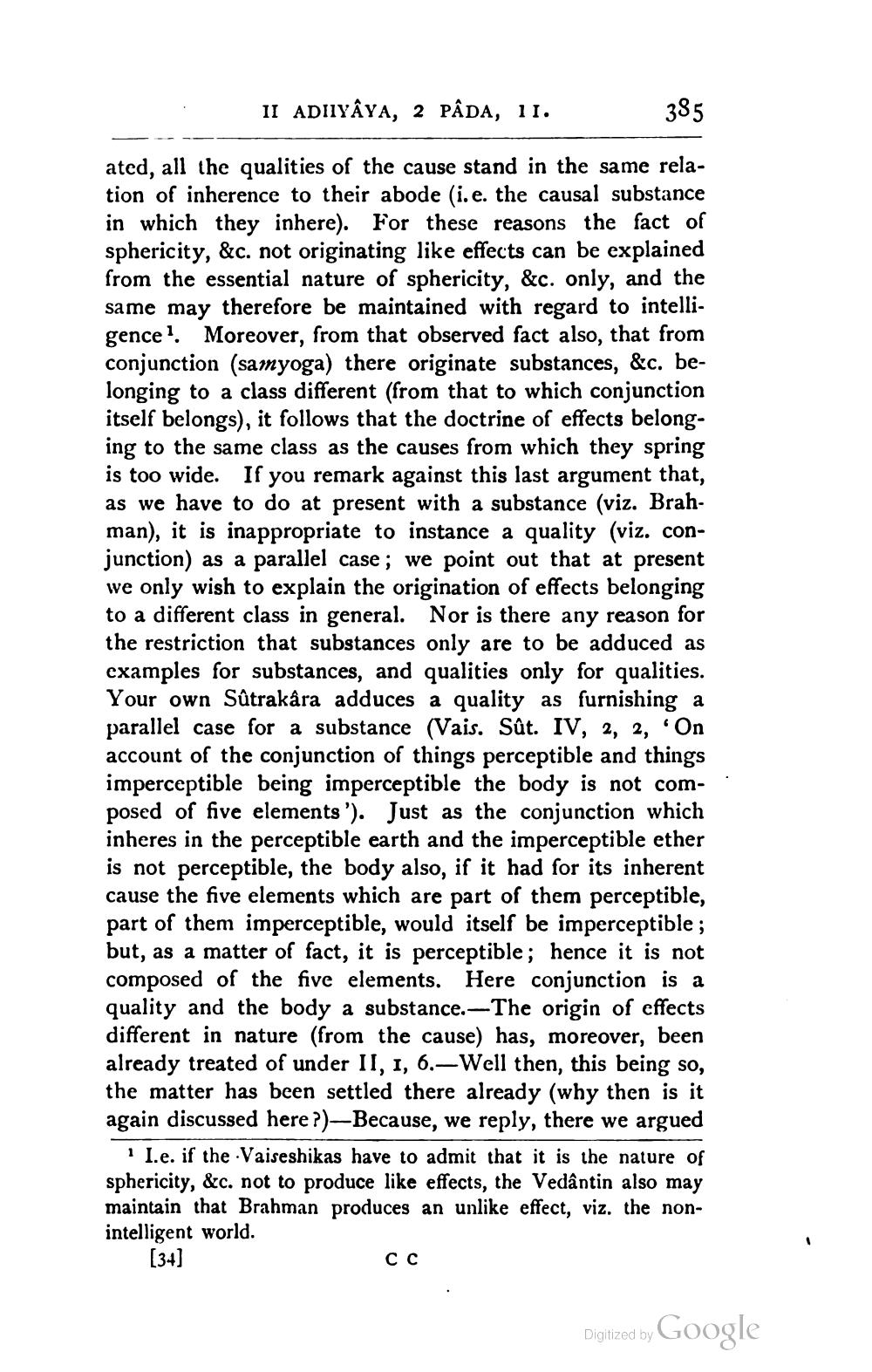________________
II ADIIYAYA, 2 PÂDA, 11.
385
ated, all the qualities of the cause stand in the same relation of inherence to their abode (i.e. the causal substance in which they inhere). For these reasons the fact of sphericity, &c. not originating like effects can be explained from the essential nature of sphericity, &c. only, and the same may therefore be maintained with regard to intelligence?. Moreover, from that observed fact also, that from conjunction (samyoga) there originate substances, &c. belonging to a class different (from that to which conjunction itself belongs), it follows that the doctrine of effects belonging to the same class as the causes from which they spring is too wide. If you remark against this last argument that, as we have to do at present with a substance (viz. Brahman), it is inappropriate to instance a quality (viz. conjunction) as a parallel case; we point out that at present we only wish to explain the origination of effects belonging to a different class in general. Nor is there any reason for the restriction that substances only are to be adduced as examples for substances, and qualities only for qualities. Your own Sûtrakâra adduces a quality as furnishing a parallel case for a substance (Vais. Sût. IV, 2, 2, On account of the conjunction of things perceptible and things imperceptible being imperceptible the body is not composed of five elements '). Just as the conjunction which inheres in the perceptible earth and the imperceptible ether is not perceptible, the body also, if it had for its inherent cause the five elements which are part of them perceptible, part of them imperceptible, would itself be imperceptible; but, as a matter of fact, it is perceptible; hence it is not composed of the five elements. Here conjunction is a quality and the body a substance. The origin of effects different in nature (from the cause) has, moreover, been already treated of under II, 1, 6.-Well then, this being so, the matter has been settled there already (why then is it again discussed here?)—Because, we reply, there we argued
1 l.e. if the Vaiseshikas have to admit that it is the nature of sphericity, &c. not to produce like effects, the Vedantin also may maintain that Brahman produces an unlike effect, viz. the nonintelligent world. (34)
сс
Digitized by
Digized by Google




